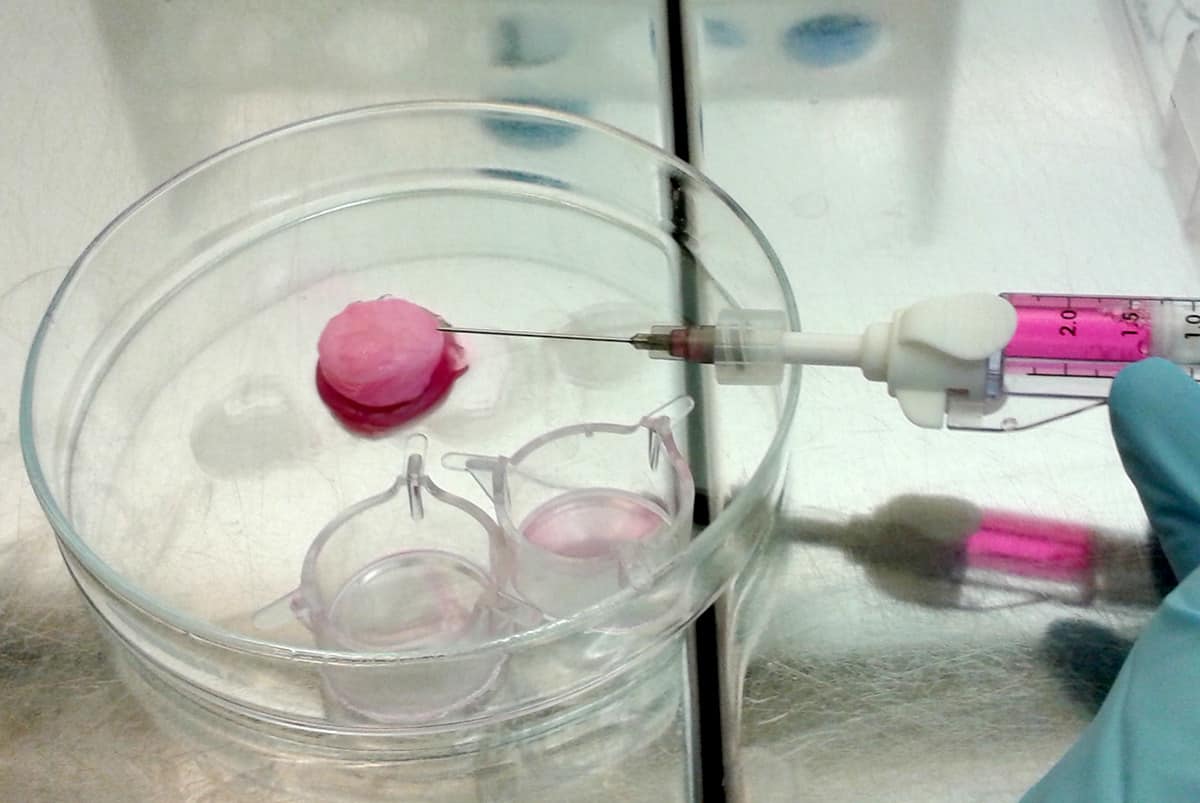The articular cartilage is the smooth tissue that generally covers the joints or in particular, the ends of bones where they come together to form these joints; they are formed of chondrocytes which stick together thereby producing a matrix of proteins and other molecules that solidifies to form the cartilage. This cartilage can lose this property or lose its function due to a number ways- to overuse, common in old age as it becomes stiffer with use, or by trauma or by disease. Once damaged, these tissues are difficult to replace and also are not capable of regrowth.
University of California researchers headed by Dr. Kyriacos Athanasiou have now grown a tissue in lab conditions which is similar to the articular cartilage. This synthetic tissue was found to be of similar composition and mechanical properties in comparison to the natural cartilage with a mix of glycoproteins and crosslinking collagen strands imparting strength to the synthetic cartilage. They achieved this by growing human chondrocytes in a scaffold-free system, which allowed the cells to self-assemble and stick together by default inside a specially designed device. Once this happened, they were mildly stretched over a period of time to obtain the end product
.“In this comprehensive study, we showed that we can finally engineer tissue that has the tensile and compressive characteristics of native tissue. The artificial cartilage that we engineer is fully biological with a structure akin to real cartilage. Most importantly, we believe that we have solved the complex problem of making tissues in the laboratory that are strong and stiff enough to take the extremely high loads encountered in joints such as the knee and hip.” said Dr. Athanasiou.



























